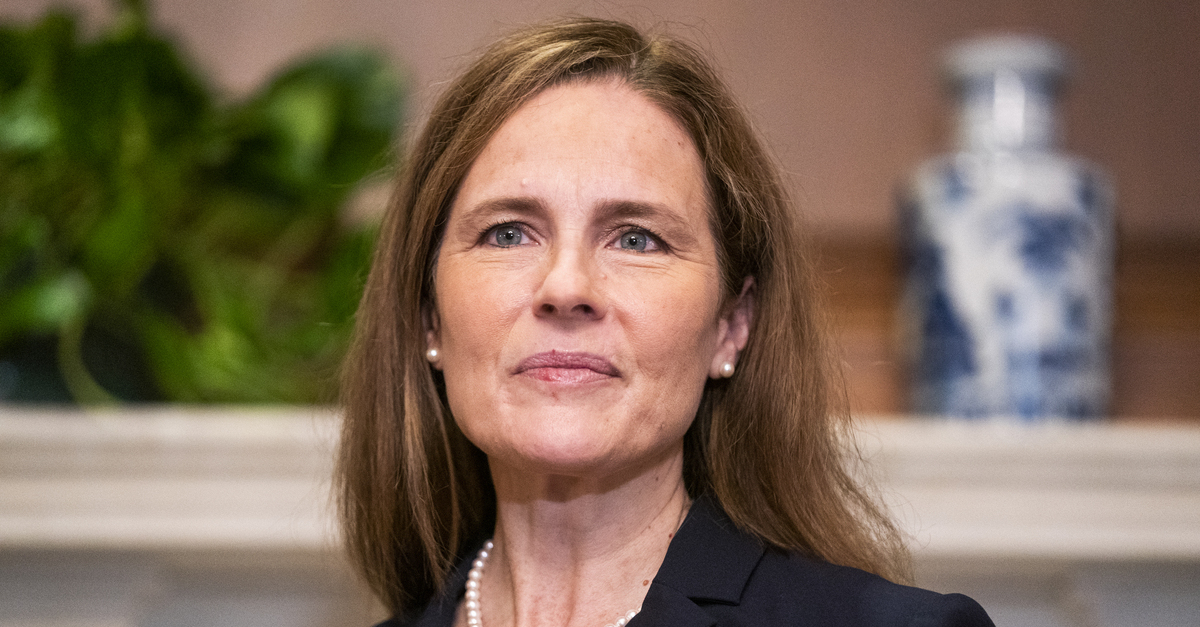
The Roman Catholic Diocese of Brooklyn, New York filed a petition for certiorari with the United States Supreme Court on Thursday, requesting an emergency injunction that would block COVID-19 restrictions on in-person church attendance.
Though the Supreme Court previously rejected a similar challenge during the earlier stage of the pandemic, the Brooklyn Diocese may be banking on changing composition of the court boding a different outcome.
The social distancing restrictions at issue in the latest challenged order, put in place by New York Gov. Andrew Cuomo (D) in October, limits church services to either 10 or 25 people, depending on the number of COVID-19 cases in the areas in which a particular church is located. The diocese now argues that the restriction constitutes a First Amendment violation, because numerous secular businesses are allowed to operate without any similar capacity restrictions.
As the diocese points out in its petition, Cuomo has expressly acknowledged that these restrictions “are most impactful on houses of worship.” The diocese’s argument rests on its perceived inconsistency in regulations:
“While this Executive Order effectively closes churches and other houses of worship, all businesses deemed ‘essential’ by the Governor—including everything from supermarkets to pet stores, huge hardware stores to brokers’ offices—are 2 permitted to remain open without any capacity limitations whatsoever, even in the most restrictive ‘red’ zones. In ‘orange’ zones, even the vast majority of nonessential businesses, including department stores, can remain open without limitation—yet churches cannot.”
The diocese already has attempted to challenge Cuomo’s order in federal court, losing at both the district court and U.S. Court of Appeals for the 2nd Circuit. Last summer, SCOTUS refused to take on cases involving similar challenges to COVID restrictions, but now that the Court is minus Justice Ruth Bader Ginsburg and plus Justice Amy Coney Barrett, things may be different.
The Supreme Court voted 5-4 in May, rejecting a challenge to COVID-restrictions in California waged by a San Diego church. The South Bay United Pentecostal Church had argued that California Gov. Gavin Newsom’s (D) plan illegally discriminated against religious institutions by closing churches while keeping stores, restaurants, and schools open.
At the time, Chief Justice John Roberts sided with the Court’s more liberal justices, writing in a concurrence, “Although California’s guidelines place restrictions on places of worship, those restrictions appear consistent with the Free Exercise Clause of the First Amendment.” Roberts continued, “Similar or more severe restrictions apply to comparable secular gatherings, including lectures, concerts, movie showings, spectator sports, and theatrical performances, where large groups of people gather in close proximity for extended periods of time.”
In the California case, four justices– Clarence Thomas, Samuel Alito, Neil Gorsuch and Brett Kavanaugh – dissented, saying that they’d have sided with the church.
In July, SCOTUS handed down another 5-4 denial of certiorari, this time in a case over Nevada’s COVID regulations. A Nevada church had argued that regulations against in-person services were inconsistent with rules allowing casinos, gyms, bars, and restaurants to operate at 50-percent capacity.
In his dissent, Alito called out the Court for allowing discrimination against religious institutions. State and local governments have, wrote Alito, “responded to the pandemic by imposing unprecedented restrictions on personal liberty, including the free exercise of religion.” While restrictions may have initially been “understandable,” he continued, officials cannot “disregard the Constitution for as long as the medical problem persists.”
Court-watchers expect Justice Barrett to vote to hear the diocese’s challenge.
The petition by the Brooklyn diocese first went to Justice Stephen Breyer, the judge assigned to emergency appeals from the 2nd Circuit; Breyer ordered the state to file a response by Wednesday, Nov. 18, at 2 p.m. EST.
[image via Jim Lo Scalzo-Pool/Getty Images]